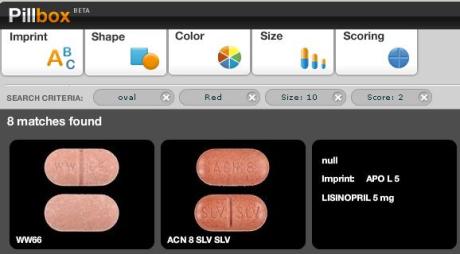June 25th, 2011 by AnnMacDonald in Health Tips, Research
No Comments »


On Saturday, while thousands of Boston Bruins fans gathered at Government Center to celebrate the team’s recent Stanley Cup victory, a hundred or so true die-hards met a few blocks away at a Massachusetts General Hospital conference to talk about complementary and alternative medicine for psychiatric disorders. While I hated to miss the Bruins parade, I’m glad I attended the MGH conference.
I’ve always been a bit of a skeptic about so-called natural therapies for one simple reason: they don’t have to go through the same rigorous testing in clinical trials that medications do. At the same time, I realize that FDA-approved drugs don’t work for everyone. One in three adults with major depression, for example, can’t completely improve their mood and other symptoms even after trying multiple antidepressants.
Clearly, we need better options for treating mental health disorders. The MGH conference convinced me that some types of complementary and alternative medicine—or CAM, for short—might be worth trying. The presenters, all psychiatrists who treat patients at MGH, backed up their recommendations with scientific evidence. Several of them also contributed to the American Psychiatric Association’s recent report on CAM therapies.
We’ll be doing a story on CAM therapies for psychiatric disorders in an upcoming issue of the Harvard Mental Health Letter. For now, here are some things I learned on Saturday: Read more »
*This blog post was originally published at Harvard Health Blog*
June 15th, 2010 by GarySchwitzer in Better Health Network, Health Policy, News, Opinion, Research
1 Comment »

 This week the FDA will vote on flibanserin, the much-talked-about drug for women with the condition called hypoactive sexual desire disorder or — because everything in sexual health needs an acronym like ED or PE — HSDD.
This week the FDA will vote on flibanserin, the much-talked-about drug for women with the condition called hypoactive sexual desire disorder or — because everything in sexual health needs an acronym like ED or PE — HSDD.
On the eve of the FDA vote, CBS last week ran still another story about flibanserin. This drug has received so much news coverage, you’d think it cures cancer.
And CBS did little more than promote the hype even more, saying FDA approval “could translate into a $2 billion market in this country alone” and then failing to challenge the disease-mongering estimate of “10 percent to 30 percent of women” with this condition. It all just goes along with the drug company’s efforts to build a demand before the drug is even approved. Read more »
*This blog post was originally published at Gary Schwitzer's HealthNewsReview Blog*
March 28th, 2010 by Berci in Better Health Network, Health Tips, News, Research
1 Comment »

 Pillbox is the result of a partnership between the National Library of Medicine and the Food and Drug Administration. It helps you identify unknown pills and tablets by parameters such as form, color, size or imprint. The constantly updated database now has more than 7,000 entries with images.
Pillbox is the result of a partnership between the National Library of Medicine and the Food and Drug Administration. It helps you identify unknown pills and tablets by parameters such as form, color, size or imprint. The constantly updated database now has more than 7,000 entries with images.
Pillbox was developed to aid in the identification of unknown solid dosage pharmaceuticals. The system combines high-resolution images of tablets and capsules with FDA-approved appearance information (imprint, shape, color, etc.) to enable users to visually search for and identify an unknown solid dosage pharmaceutical. Read more »
*This blog post was originally published at ScienceRoll*





 This week the FDA will vote on flibanserin, the much-talked-about drug for women with the condition called hypoactive sexual desire disorder or — because everything in sexual health needs an acronym like ED or PE — HSDD.
This week the FDA will vote on flibanserin, the much-talked-about drug for women with the condition called hypoactive sexual desire disorder or — because everything in sexual health needs an acronym like ED or PE — HSDD.









